You may not realise it, but strength training exercises have a multitude of health and mental health benefits! Our blog will discuss these in-depth and help you find the perfect strength training exercises to add to your fitness regime.
What is Strength Training?
Strength training is a type of exercise that uses resistance to build muscle and bone mass. This can be done using weights, bodyweight exercises, or other types of resistance equipment. Strength training is an important part of any fitness program and can help improve your overall health and quality of life.
If you’re new to strength training, it’s important to start slowly and gradually increase the amount of weight or resistance you’re using. You should also focus on using proper form to avoid injury. Once you’re comfortable with the basics, you can start adding more weight and challenge yourself with more difficult exercises.
Benefits of Strength Training
There are many benefits to strength training.
Strength training can improve muscle mass and bone density. This is effective in preventing injury and can also help improve your overall appearance.
Strength training can also help improve your cardiovascular health by improving blood flow and reducing blood pressure. It can also help improve insulin sensitivity, which can help prevent type 2 diabetes. Strength training is a great way to boost your metabolism and burn more calories both during and after your workout. This can help you lose weight or maintain a healthy weight.
In addition to the physical benefits, strength training can also improve your mental health. It can help reduce stress and anxiety, and can even help improve cognitive function. As you exercise, endorphins are released, which can help improve your mood. Furthermore, exercise provides a distraction to the stresses of life and also motivate us to overcome adversity. The mental benefits behind exercise are incredibly valuable and can go a long way in boosting our minds.
For people with chronic health conditions, strength training can help improve quality of life and increase independence. It can also help reduce the need for medication or surgery. Furthermore, strength training is effective at enhancing balance as we age, which can help prevent falls and injuries.
Whether you’re looking to improve your overall health or just want to find a new way to exercise, strength training is a great option. It has numerous benefits for both our bodies and minds, and is a great way to boost our overall fitness.
How to Get Started with Strength Training
When undertaking strength training, it is important to ensure you are doing it safely and effectively. This means using the correct technique, using the right weights for your level, and warm up and cool down properly. It is also important to consider your diet to ensure that it is supporting your training rather than hindering it.
Progressive Overload
If you are new to strength training, it is best to start slowly and gradually increase the intensity. This is called progressive overload. By slowly increasing the amount of weight you are lifting, or the number of repetitions, you can minimise the risk of injury and give your body time to adapt to the new demands being placed on it. You will then begin to see steady improvements to your strength and appearance, allowing you to monitor progress and adapt exercises accordingly.
Correct Technique
Using the correct technique is essential for both safety and effectiveness. Make sure you have a good understanding of how to do each exercise before you attempt it. If you are unsure, seek professional guidance. Once you have the technique mastered, focus on executing the movement with good form and control. This will help you get the most out of each rep and prevent injuries. Never be afraid to ask for advice or to watch videos to monitor technique. It is important to avoid injury, but it will also ensure that you are working the correct muscles. This will go a long way in ensuring that you see results.
Choose the Right Weights
Heavy isn’t always the best option! Choosing the right weights is important for both safety and effectiveness. If the weights are too light, you will not see the results you want. If the weights are too heavy, you risk injury. Start with a weight that feels challenging but doable and focus on executing each rep with good form. As you get stronger, you can slowly increase the weight. Remember to listen to your body and never lift more than you are comfortable with.
Warm Up and Cool Down Properly
Warming up before strength training is important in order to reduce the risk of injury. A simple warm-up could involve some light cardio and dynamic stretches. This will help to increase your heart rate and prepare your muscles for the workout ahead. Cooling down after your session is also key in order to avoid injury. Cooling down allows your heart rate to return to its resting state gradually and gives your muscles time to recover. A simple cool-down could involve some light cardio and static stretches.
Consider Your Diet
What you eat plays a big role in how effective your strength training is. Eating a healthy, balanced diet will ensure that your body has the nutrients it needs to support your training. This means eating plenty of protein, as well as complex carbohydrates and healthy fats. It is also important to stay hydrated by drinking plenty of water throughout the day. Ultimately, your objectives for your strength training will determine how suitable your diet is, so be sure to research this to ensure you see the results you want. Consider speaking to a registered dietitian or a healthcare professional if you are unsure about what kind of diet would be best for you.
Strength Training in Rehabilitation
If you are in rehabilitation, strength training can help you regain movement and function. Strength training can also help you manage pain and prevent further injury.
Before starting any strength training program, it is important to consult with your doctor or rehabilitation therapist to determine what exercises are appropriate for you. Strength training can benefit clients in rehabilitation.
If you are in rehabilitation, strength training can help you regain movement and function. Strength training can also help you manage pain and prevent further injury. Before starting any strength training program, it is important to consult with your doctor or rehabilitation therapist to determine what exercises are appropriate for you.
Strength training can benefit clients in rehabilitation by:
· Improving functional movement
· Reducing pain
· Improving joint stability
· Enhancing quality of life
· Improving confidence and independence
· Functional Movement
Contact Us
We provide chiropractic treatment and physiotherapy at Falcon Health and prescribe a variety of exercises, including strength training. We believe that strength training has a wide array of benefits, including its value in the chiropractic care and physiotherapy provided at Falcon Health.
If you would like to learn more about strength training, or enquire about our chiropractic care or physiotherapy at Falcon Health, then explore our website or contact us on 01444 257555 or info@falcon-health.com.
Article: Phoenix Marketing






